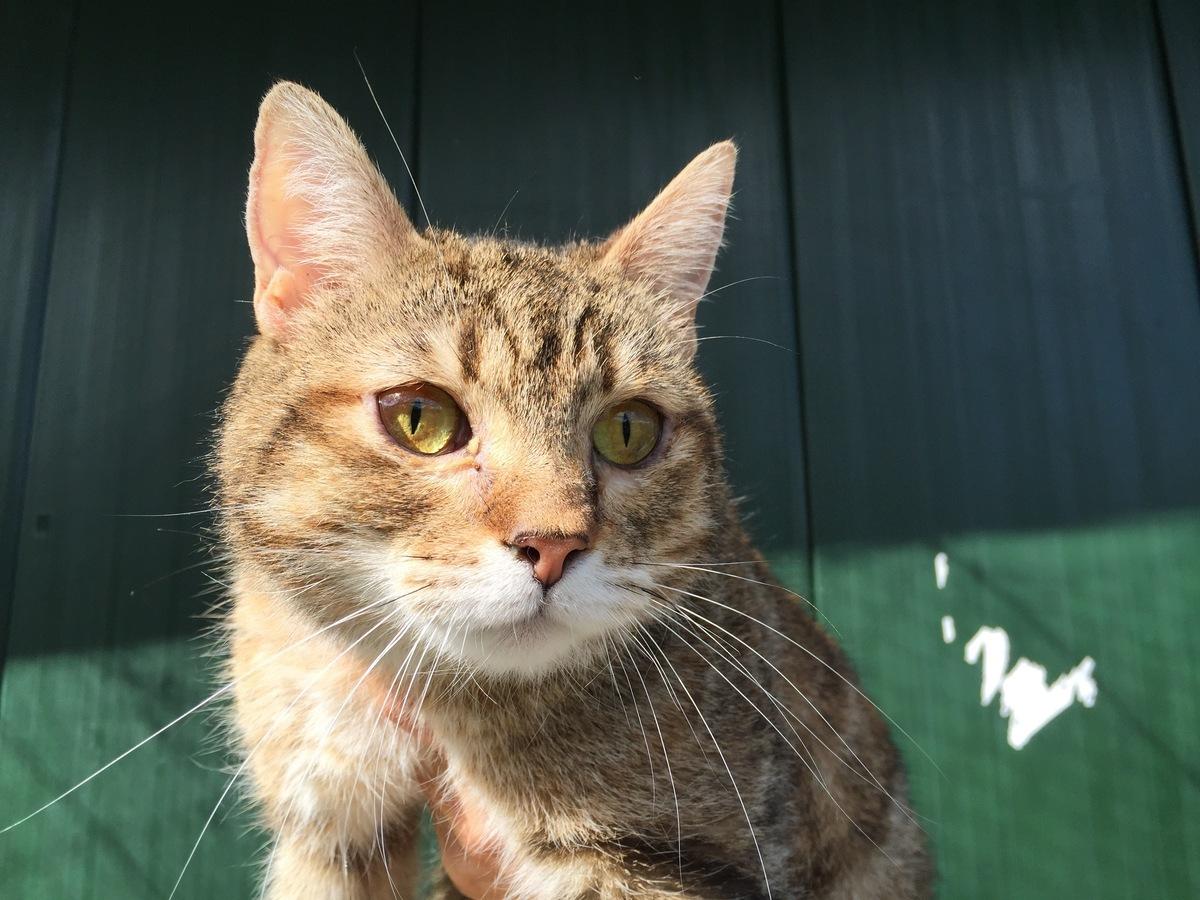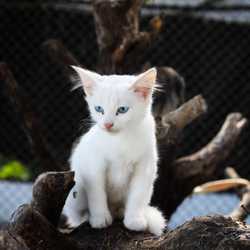

Sponsor a cat
A FELINE THAT EVERYONE LOVES
Despite their wild origins, cats have forged strong bonds with humans throughout their evolution. After accompanying the first explorers around the globe, they have earned a true place at the heart of our homes.
Contrary to what one might believe, domestic cats (Felis catus) are not descendants of the European wildcat (Felis silvestris silvestris). Their common ancestor is actually the African wildcat (Felis silvestris lybica), also known as the sand cat. A paleogenetic investigation revealed that this species, adapted to the steppes, savannas, and deserts of the Middle East, likely approached humans around 10,000 years ago in Mesopotamia, with the beginnings of agriculture and settlement. Grain stocks attracted rodents, and these small felines quickly became valuable allies of the early villagers to protect their harvests. Over time and through domestication, cats saw some of their genes evolve, primarily those related to behavior, making them less skittish.
Gradually, these now-domesticated cats began to spread across the world, initially via Phoenician and Egyptian merchant ships where they were taken on board to hunt mice and rats in the holds. They enjoyed great success wherever they went, from ancient Greece and Rome to China and India, and later to Japan. Finally, they reached America with the European settlers. Today, those with whom we share our homes have become true companions, even though they have retained their hunting instinct and love of independence (see sentience file). However, many of them are abandoned and mistreated by their “owners” or by neighbors who cannot tolerate their presence in the vicinity. Homeless, they often die from hunger, thirst, or cold. Many are also poisoned, euthanized, and frequently subjected to the worst acts of cruelty.
Darjeeling Refuge
In 2002, One Voice opened the Darjeeling Animal Center in West Bengal to address the problem of stray dogs. Before our intervention, many dogs were left to fend for themselves on the streets of Darjeeling. Out of fear of rabies, people mistreated them with kicks and thrown stones. Large-scale eradication campaigns were also regularly conducted against them, cruelly poisoning them with strychnine. We negotiated with the municipality to stop these massacres in exchange for creating a new veterinary center. One Voice funded the purchase of the land and the construction of the clinic and shelter. Since its opening, our center has welcomed, treated, and sterilized thousands of dogs. We also care for cats that have been persecuted. Some of them are released, others adopted, and still others remain in the shelter for life. Additionally, a mobile veterinary clinic visits surrounding villages to vaccinate and treat animals while raising local awareness about their protection. Thanks to our efforts, rabies has been eradicated and attitudes are changing. Making these victories permanent is a constant battle!
Animal sponsorships
Luna
Born on an Indian street, Luna first lost her mother, who was poisoned, then her brother and sister, with whom she lived near a pile of garbage. Lonely, hungry, and frightened, she was letting herself die. Dropped off in front of the shelter in a sealed bag by a garbage collector, she was in a catastrophic state when the caregivers discovered her. Fortunately, in Darjeeling, the blue-eyed beauty was welcomed like a princess. Surrounded by affection and attention, she gradually recovered from her traumas and learned to trust humans. Today, Luna has grown up and flourishes far from the memories of her past. An exceptional climber, she loves spending time at the tops of trees. But that doesn’t make her wild. She also enjoys playing with other cats or purring for cuddles. Both tender and playful, she has found her place in this world and amazes everyone who meets her.
Sponsoring Luna means giving her a life of a happy cat, surrounded by loving humans. With your support, we provide her with appropriate meals, veterinary care, and a welcoming home, so that the street is just a distant bad memory.
